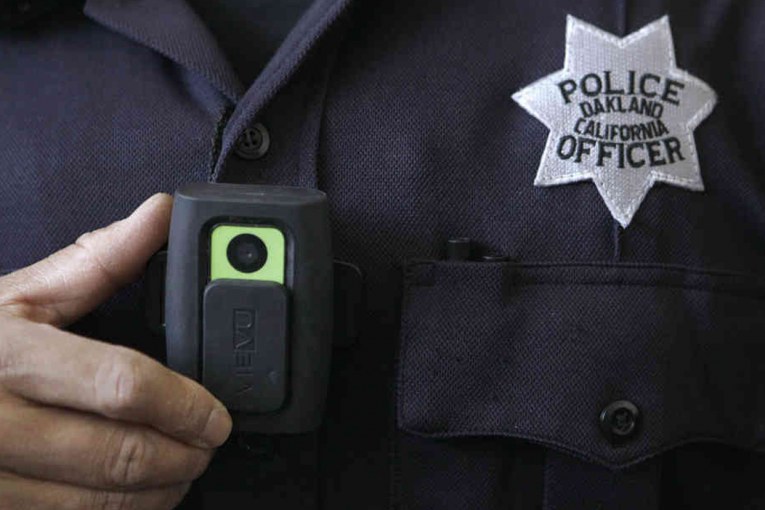

In one of the most recent incidents in Chicago, where a Chicago Police Department officer shot an African American teenager in the back last week, questions are being asked because the officer, now suspended, was wearing a body camera, but the device failed to record the fatal encounter.
Naturally, advocates for the 18-year-old, Paul O’Neal, who died on Thursday, are skeptical. The family’s attorney, Michael Oppenheimer, said on Monday, “If there is not a cover-up here, I don’t know where there is one.”
According to a story in the NY Times this morning, “The shooting happened after officers chased a stolen Jaguar convertible through the South Side before it collided with a police cruiser on a residential street. Two officers opened fire. Cameras captured some early stages of the encounter, but not the fatal gunshot, apparently fired by another officer after Mr. O’Neal fled the crash scene on foot.”
A police spokesperson said that authorities are investigating why there was no footage of the fatal gunshot but did note that officers in that section of the city had only been using the body cameras for a few days.
Three officers involved have been stripped of their police powers for their actions during the shooting.
But Chicago has a problem. Not only are murders up sharply, but community trust in policing is plummeting.
Last week the LA Times reported that Cook County prosecutors “recently notified defense lawyers in at least 10 criminal cases that a judge had found the court testimony of a veteran Chicago police officer to be false.” At least three other cases had a judge “cast doubt on testimony from two other police officers.”
In May, a Chicago Tribune investigation found that police were rarely punished when a judge found they had testified falsely or questioned their credibility.
The Times reports, “The state’s attorney’s office, in fact, had done nothing about any of the officers’ testimony until the Tribune investigation raised questions about the cases.”
While the last two years, that started in Ferguson, Missouri, in August 2014, have started to change the way that police conduct themselves – including the rapid proliferation of body-worn cameras, there are questions about how effective cameras will be in terms of actually capturing police misconduct.
Most of the videos that have surfaced have been from third parties rather than from police cameras. However, a dash camera caught the video and audio of the Sandra Bland incident in Texas, for example.
Advocates for body-worn cameras have always recognized that cameras will only work if there is “a framework of strong policies to ensure they protect the public without becoming yet another system for routine surveillance,” an ACLU report from 2015 pointed out.
“Without such a framework,” the report goes on, “their accountability benefits would not exceed their privacy risks.”
At this point, we are less concerned about privacy risks and more concerned about the proper usage of the cameras to begin with.
“A body camera policy … must have some teeth associated with it,” said Jay Stanley, author of the ACLU report. For Mr. Stanley, that means “not only a risk of disciplinary action but also perhaps an exclusionary rule for any evidence obtained in an unrecorded encounter.”
That would mean evidence obtained during an unrecorded event would not be able to be used by prosecutors at trial. He also suggests that whenever an officer fails to record, “that incident would create an evidentiary presumption against the officer.”
Some have gone far enough to argue that, in the case of camera failure, the presumption would turn against the officer, who would then have to provide evidence that he acted in good faith.
No one seems to have adopted such a stringent rule, however.
PERF (Police Executive Research Forum) would not go that far, instead suggesting, “Officers who wear body-worn cameras should be required to articulate on camera or in writing their reasoning if they fail to record an activity that is required by department policy to be recorded.”
The Chicago case now has a chance to force stronger changes. The officers here have a plausible defense in that they were likely unfamiliar with the dynamics of recording, given that they had just gotten the body cameras a few days before.
However, they have a case where a young black man was shot in the back and that is always going to lead to questions.
It doesn’t seem like this should be as big of a problem as it may be. The way dash cameras work is that the video is always on, when the lights are activated, and the recording is automatically retroactively saved and stored. In most cases, officers cannot access or interfere with the dash camera video.
They could make body-worn cameras similar to that. But even then, there might be ways around it. The video could get covered up or knocked off in a confrontation.
At this point, the fact that the camera did not record could be an innocent mistake, but, given the backdrop, the police and investigators ought to treat it with suspicion.
—David M. Greenwald reporting
